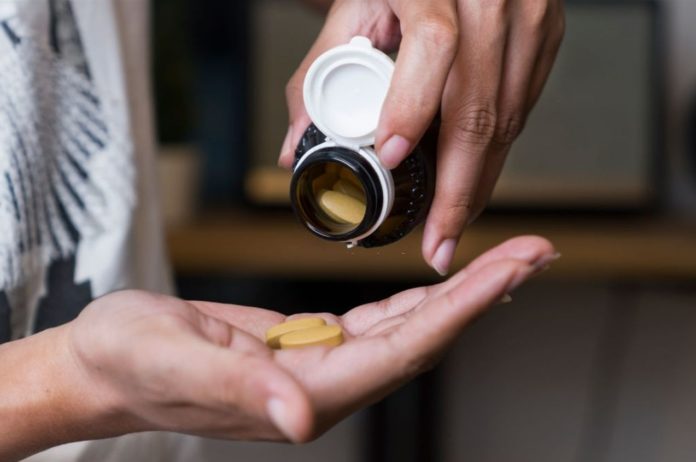On Thursday, the UK Medicines and Healthcare products Regulatory Agency approved Merck’s molnupiravir, the first oral antiviral for treating COVID-19.
However, the approval comes as a prominent virologist has cautioned that taking molnupiravir for those at high risk of severe disease could cause considerably more harm than good, perhaps unleashing new, deadlier SARS-CoV-2 strains.
Other virologists believe the issue is worth following up on, but that it is essentially speculative at the moment.
“I don’t think we are in the position of withholding a life-saving drug for a risk that may or may not happen,” comments viral evolution expert Aris Katzourakis from the University of Oxford.
Molnupiravir, an innovative antiviral treatment created by Merck and Ridgeback Biotherapeutics dubbed EIDD-2801, functions by interfering with viral replication and littering the viral genome with mutations until the virus can no longer reproduce.
Merck and Ridgeback officials published the findings of a clinical trial last month, which found that administering the medicine to COVID-19 patients early in the disease lowered their chance of hospitalization and death by 50%.
The drug’s propensity to alter RNA has sparked concerns that it could cause mutations in a patient’s genetic material, potentially leading to cancer or birth problems; however, investigations to yet have shown no evidence to support those concerns.
Now, William Haseltine, a virologist best known for his work on HIV and the human genome project, claims that molnupiravir, by causing viral changes, could lead to the emergence of new viral types that are more deadly than today’s.
“You are putting a drug into circulation that is a potent mutagen at a time when we are deeply concerned about new variants,” Haseltine outlined his concern Monday in a blog post in Forbes.
“I can’t imagine doing anything more dangerous.”
Patients who are given antibiotics and other treatments frequently do not complete their prescription courses, which can allow resistant germs to persist and spread, according to him. Haseltine is concerned that if COVID-19 patients feel well after a few days and quit taking molnupiravir, viral mutations will survive and spread to others.
“If I were trying to create a new and more dangerous virus in humans, I would feed a sub-clinical dose [of molnupiravir] to people infected,” Haseltine adds.
Raymond Schinazi, an infectious disease expert at Emory University acknowledges the risk: “The possibility [of generating variants] is there.”
But neither he nor anybody else ScienceInsider spoke to expressed the same level of anxiety as Haseltine.
According to Katzourakis: “I don’t share the alarm in this. If you force an organism to mutate more, it’s more likely to be bad for the virus.”
Studies suggest that coronaviruses can escape molnupiravir-induced mutations, which is what Haseltine is concerned about. Mark Denison, a virologist at Vanderbilt University, and colleagues, for example, repeatedly exposed coronaviruses to sublethal levels of a medicine called EIDD-1931 to see if drug-resistant viruses might evolve two years ago. They found that 30 rounds of such pharmacological therapy generated up to 162 distinct mutations in populations of two coronaviruses—murine hepatitis virus and the virus that causes Middle East respiratory syndrome. However, Denison points out that his research didn’t look at individual viruses; instead, up to 162 mutations were discovered in populations of cells infected with one of the two coronaviruses.
Most of the mutations reduced the virus growth.
“If I take away anything from our work, it is that if the virus tries to adapt, say through resistance [to molnupiravir], it continuously develops deleterious mutations,” Denison adds.
But, Ravindra Gupta, a microbiologist at the University of Cambridge, warns that mutated viruses may thrive in the people who are most likely to take molnupiravir: those with weakened immune systems.
“These are precisely the people who are most likely to receive [molnupiravir],” he says because vaccines are less efficient at protecting those patients.
Merck’s infectious disease discovery chief, Daria Hazuda, says the company hasn’t found any evidence that patients using molnupiravir are producing viruses with new and deadly mutations.
“We don’t see any infectious virus” in patients who finished the 5-day course of the medicine, according to Hazuda. She claims that the changes that occur along the route are random, and that they aren’t concentrated in a single gene that would make the virus more likely to survive.
“There is no evidence for any selective bias,” she adds.
Furthermore, as Hazuda and others point out, SARS-CoV-2 is rather good at organically churning new mutations as it multiplies in infected persons.
“There is no shortage of viral variation out there,” Katzourakis adds.
The more pressing concern is whether molnupiravir exerts selection pressure on the virus, causing it to become transmissible or virulent.
“I find it difficult to imagine,” he says. “But I can’t rule that out.”
According to Denison and others, the use of molnupiravir is more likely to result in the emergence of a virus that is no longer fatal or transmissible but is resistant to the treatment, which is a usual outcome for anti-infectious drugs. However, Friday’s news that another antiviral medicine from Pfizer is highly effective against SARS-CoV-2 indicates a means to avoid resistance: taking both pills together, similar to how HIV and other illnesses are treated.
An FDA advisory committee will consider whether molnupiravir should be approved for emergency use in the United States on November 30.
Image Credit: Getty
You were reading: COVID-19 Pill Could Bring Added Risks for Population, Says Well-known Expert
